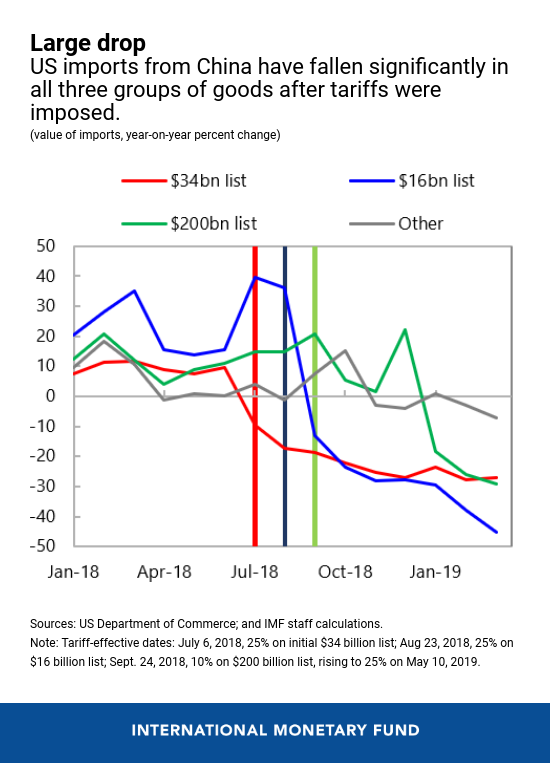Nvidia Faces Geopolitical Headwinds: The Impact Of US-China Relations And Beyond

Table of Contents
The US-China Tech War and its Impact on Nvidia
The burgeoning US-China tech war presents a major hurdle for Nvidia. Restrictions imposed by the US government significantly impact Nvidia's ability to operate freely in the Chinese market, a crucial region for its high-performance computing (HPC) and AI chip sales.
Export Controls and Supply Chain Disruptions
US export controls targeting advanced chips, like those produced by Nvidia, severely limit their sale to Chinese entities involved in AI development and other sensitive technological applications. This has led to:
- Reduced access to the Chinese market: A considerable portion of Nvidia's revenue previously stemmed from China. Export restrictions have directly impacted this revenue stream.
- Supply chain vulnerabilities: The restrictions force Nvidia to navigate a more complex and potentially less reliable supply chain, increasing costs and potentially impacting production timelines.
- Increased scrutiny and compliance costs: Nvidia must now dedicate significant resources to ensure compliance with ever-evolving export regulations, adding to operational expenses.
- Examples of specific export controls: The restrictions on the sale of A100 and H100 GPUs to Chinese customers are prime examples, pushing Nvidia to develop alternative solutions.
Countermeasures and Innovation
In response, Nvidia has adopted several strategies:
- Developing alternative products: The introduction of the A800 GPU, designed to comply with US export regulations while maintaining performance, exemplifies Nvidia’s proactive approach to navigating these limitations.
- Diversification of markets: Nvidia is actively expanding its presence in other regions, reducing reliance on any single market and mitigating the impact of restrictions in one area.
- Strategic partnerships: Collaborations with other companies could help diversify the supply chain and open new avenues for market penetration.
- Investing in R&D: The pressure created by geopolitical headwinds is driving innovation, pushing Nvidia to create more advanced and efficient technologies.
Geopolitical Risks Beyond US-China Relations
The challenges faced by Nvidia extend beyond the US-China dynamic.
Global Chip Shortages and Geopolitical Instability
Global chip shortages, exacerbated by geopolitical instability, continue to impact Nvidia's operations.
- Regional conflicts: The ongoing conflict in Ukraine, for instance, has disrupted supply chains, impacting the availability of raw materials and manufacturing capacity.
- Pricing pressures: Shortages drive up the cost of components, impacting Nvidia's profit margins.
- Increased uncertainty: Geopolitical instability creates uncertainty in the global market, making it difficult to predict demand and plan for future production.
Data Privacy and Cybersecurity Concerns
Growing global concerns about data privacy and cybersecurity have significant implications for Nvidia.
- Regulatory compliance: Nvidia needs to comply with increasingly stringent data privacy regulations (GDPR, CCPA, etc.), leading to increased compliance costs.
- Market access: Failure to comply with these regulations could restrict Nvidia's market access in certain jurisdictions.
- Reputational risk: Data breaches or security vulnerabilities could severely damage Nvidia's reputation and market standing.
Opportunities Amidst the Headwinds
Despite these challenges, Nvidia has significant opportunities for growth.
Increased Demand for AI Solutions
The burgeoning demand for AI solutions across various sectors presents a major opportunity for Nvidia.
- Autonomous vehicles: The automotive industry is increasingly reliant on Nvidia's GPUs for the development of self-driving technology.
- Healthcare: AI-powered medical imaging and diagnostics are driving demand for Nvidia's high-performance computing solutions.
- Cloud computing: The growth of cloud computing requires powerful GPUs, creating significant opportunities for Nvidia.
Strategic Partnerships and Market Diversification
Nvidia's strategies to mitigate geopolitical risks create opportunities for expansion and innovation.
- Expanding into new markets: Focus on emerging markets less affected by US-China tensions allows Nvidia to tap into new revenue streams.
- Strategic alliances: Partnerships with companies in various sectors can broaden Nvidia's reach and create new market opportunities.
- Technological advancements: Investment in new technologies can position Nvidia as a leader in the next generation of AI hardware and software.
Conclusion
Nvidia's journey through the complex landscape of Nvidia geopolitical headwinds is marked by both significant challenges and exciting opportunities. The US-China tech war, global chip shortages, and evolving data privacy regulations present considerable obstacles. However, the ever-growing demand for AI solutions and Nvidia's strategic responses—including market diversification and technological innovation—offer pathways to sustained growth. Understanding the ongoing evolution of Nvidia's response to these geopolitical headwinds is crucial for investors and industry analysts alike. Stay tuned for further analysis on Nvidia's strategic maneuvers in this complex global environment.

Featured Posts
-
 Actors And Writers Strike The Full Impact On Hollywoods Production
Apr 30, 2025
Actors And Writers Strike The Full Impact On Hollywoods Production
Apr 30, 2025 -
 Black Sea Beaches Closed Russias Response To Major Oil Spill
Apr 30, 2025
Black Sea Beaches Closed Russias Response To Major Oil Spill
Apr 30, 2025 -
 Zakrytie Gorok V Chelyabinske Posledstviya Anomalnoy Pogody
Apr 30, 2025
Zakrytie Gorok V Chelyabinske Posledstviya Anomalnoy Pogody
Apr 30, 2025 -
 String Of Nfl Heists Charges Filed Against Chilean Migrant Group
Apr 30, 2025
String Of Nfl Heists Charges Filed Against Chilean Migrant Group
Apr 30, 2025 -
 Wayne Gretzky Fast Facts Records And Accomplishments
Apr 30, 2025
Wayne Gretzky Fast Facts Records And Accomplishments
Apr 30, 2025
